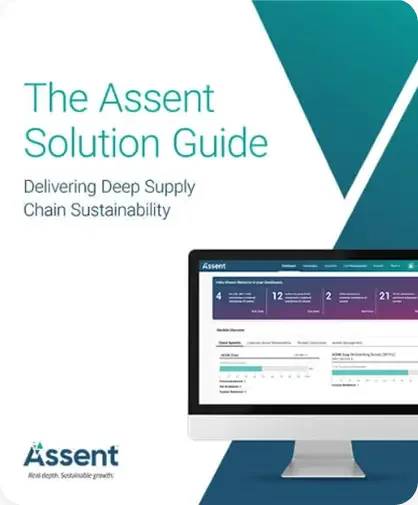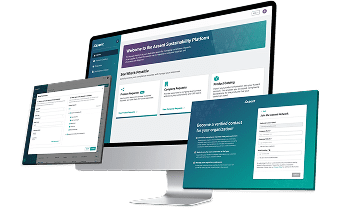Still Exploring?
Looks like you’ve been exploring our platform.
Want to see everything in one place?
Rising Regulatory Pressure
Data-Heavy Requirements
Market Access
Cross-Functional Impact
And that part of the life cycle is exactly where the Ecodesign for Sustainable Products Regulation (ESPR) now requires proof of recycled content, carbon footprint, and safe materials. 1
1 REPORT on the implementation of the Ecodesign Directive. https://www.europarl.europa.eu/doceo/document/A-8-2018-0165_EN.html?

Download the Product Sustainability handbook for expert insights on critical product sustainability requirements across the globe, including ESPR, the EU Batteries Regulation, Digital Product Passports, and more.
Get Your CopyJuly 18, 2024
The ESPR enters into force, replacing the 2009 Ecodesign Directive
April 16, 2025
The European Commission adopts the first 2025–2030 Working Plan
Need help meeting
your requirements?
Q2 2026
EU launches the central Digital Product Passport registry and public portal
Q2 2026
Ban on destroying unsold textiles and footwear begins (large companies)
2026-2027
Initial delegated acts expected to apply:
Ready for your first delegated act?
Book a DemoJuly 19, 2027
The European Commission publishes the first consolidated report on the destruction of unsold goods destruction.
2027-2029
First Digital Product Passport requirements for market access
Indicative window for more acts?
July 19, 2030 (Future Outlook)
Ban on destroying unsold textiles and footwear expands to medium-sized companies.
Get ahead of tomorrow’s ESPR regulation requirements
Book a DemoLate Q4, 2030 (Future Outlook)
Mandatory specific chemical disclosure
2027 may seem like a long way away, but for manufacturers with complex supply chains, there is much to do between now and the deadline, which is closer than it appears — much, much closer.
Gathering primary data across multi-tier, global supply chains is a heavy lift that can take years to complete.

Nearly half of supply chain professionals say they’re not ready for DPP requirements.

Updating products to meet new ESPR rules — and recertifying them — can take three years or more.

Accurate supplier data now carries real monetary and competitive value. Importers need it to secure the CE marking and avoid fines; suppliers need it to stay on customer shortlists. As ESPR requirements tighten, the cost of inaction rises, from parts obsolescence to lost market access.
Assent puts you in control of your data journey. Our ESG solution and trusted experts give you a structured, supplier-friendly path to capture product-level data, including recycled content, carbon footprint, and substances of concern. This ensures you’re ready to meet ESPR and Digital Product Passport requirements.
Proven framework for ESPR-relevant data collection
Hands-on program expertise to decode ESPR requirements
Direct supplier access through Assent’s network
Central hub for materials, carbon, and recyclability data
Audit-ready documentation for defensible CE marking